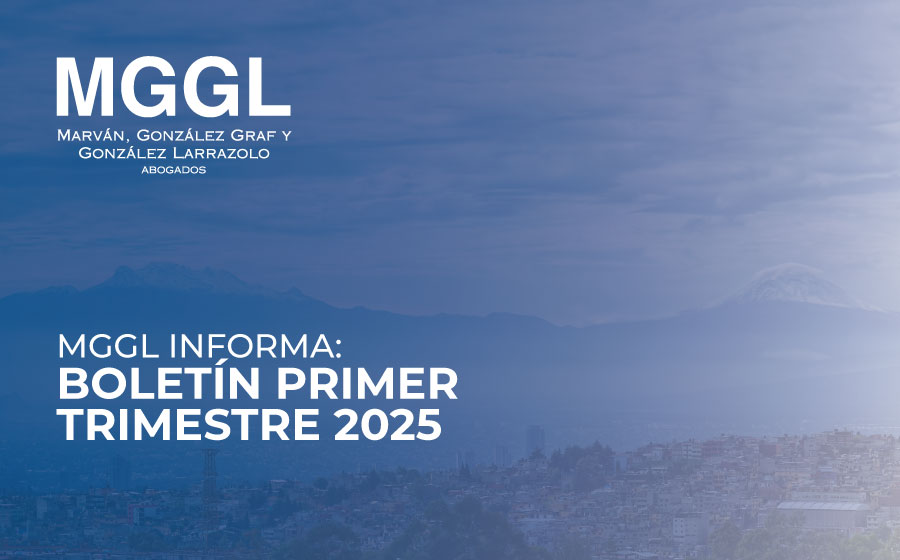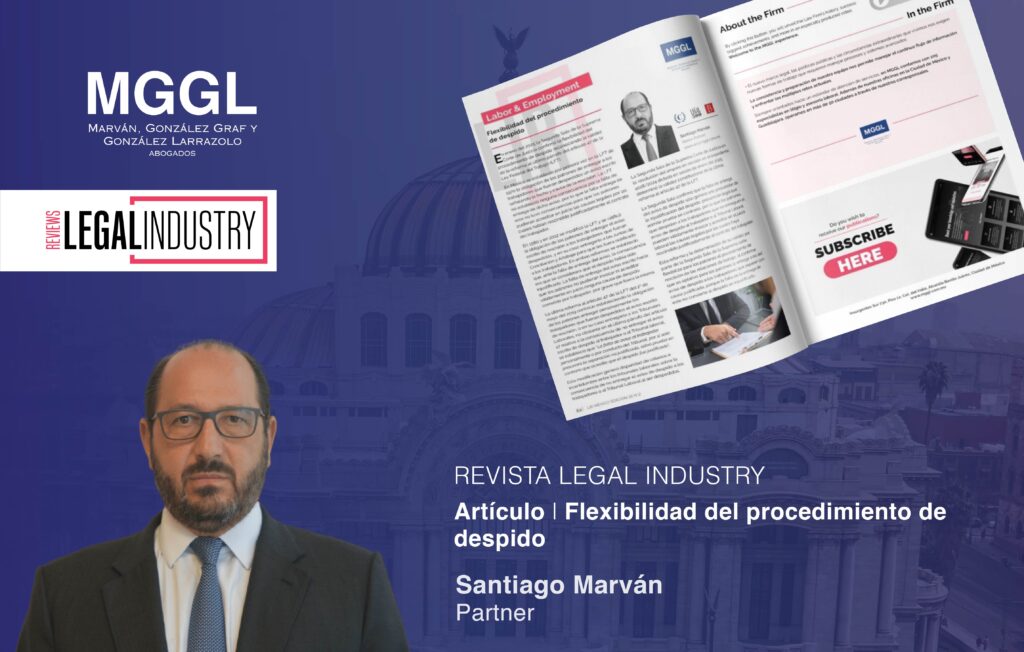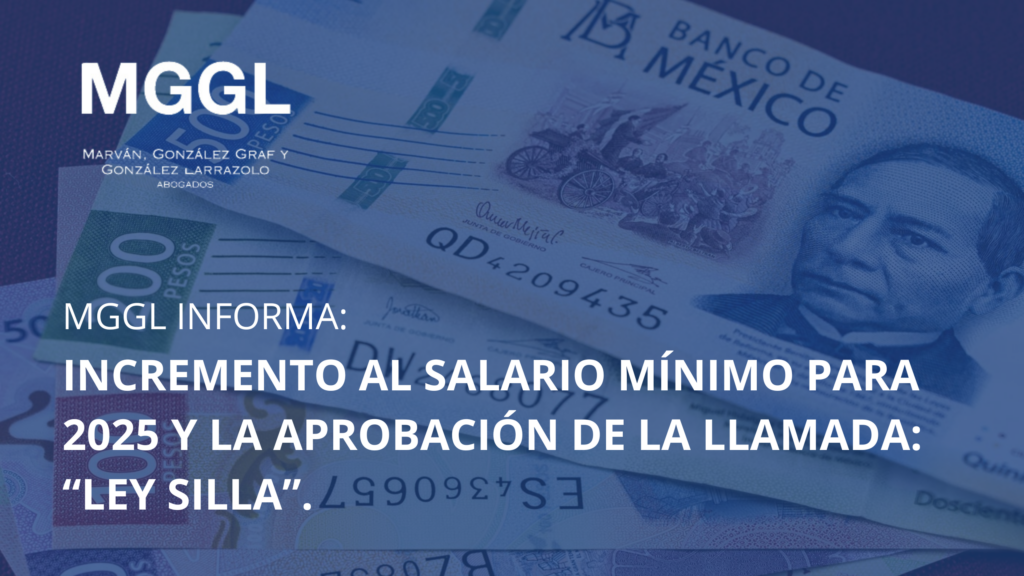During the first quarter of the year, several reforms to labor legislation were published, among other provisions in the field, reigniting legislative debate on various initiatives planned for implementation. In this newsletter, we share with you relevant legislative updates, legal criteria, and pending initiatives.
1. Reform to the INFONAVIT Law
On February 21, 2025, the reform to the Law of the Institute of the National Housing Fund for Workers (INFONAVIT) was published in the Federal Official Gazette (DOF). This reform introduces significant changes to employer obligations regarding contributions and payroll deductions derived from housing loans granted by the Institute.
The reform stipulates that, regardless of whether the worker is on leave or absent, the employer is still required to make the deductions necessary to cover the credits or rents provided by INFONAVIT.
The interpretation here is that an employee’s disability or absence does not suspend the employer's obligation to make such deductions—however, the employee must have received payments in order for the deduction to apply.
It is important to note that on March 13, 2025, INFONAVIT issued Normative Guideline on Collection 01/2025, which clarifies that the employer is not obligated to deliver funds derived from loans or rents to INFONAVIT when no deduction could be made from the employee. This criterion clarifies that the reform does not imply the employer must cover the full amount of the credit, but should adjust the deductions and remittances proportionally to the days worked and the salary earned during the relevant period.
Additionally, the obligation to deduct from salary and remit to INFONAVIT applies only when the employment relationship is active. Therefore, if an employee has an absence of more than 8 days as defined in the Social Security Law (LSS), the employer may deregister them. Deregistering an employee due to absenteeism—when aligned with LSS criteria—would eliminate ongoing employer obligations when the employee does not work or earn wages, preventing the employer from becoming jointly liable for the employee’s missed payments.
Furthermore, under the Federal Labor Law (LFT), deductions from minimum wage for this concept may not exceed 20%. andLFT has been amended to establish that deductions for rents may not exceed 30% of the salary. If the employee earns more than the minimum wage, the deduction must align with the amount stated in the “Notice of Deduction Retention.”
To comply with these provisions, we recommend that companies review how payroll deductions are structured and adjust their payment systems to avoid remitting amounts to INFONAVIT when employees are on leave or absent. Companies should also retain supporting documents that prove the employee did not earn wages due to incapacity or absenteeism, as these may be required by INFONAVIT on a bimonthly basis. Disabilities may be proved with forms issued by the Mexican Social Security Institute (IMSS), and absences with pay slips and attendance records showing that the employee did not report to work.
INFONAVIT is currently evaluating the establishment of a transition period to allow employers time to implement the new legal requirements.
More information: https://www.dof.gob.mx/nota_detalle.php?codigo=5749909&fecha=21/02/2025#gsc.tab=0
2. Official Mexican Standard NOM-017-STPS-2024: Personal Protective Equipment – Selection, Use, and Management in Workplaces
On March 28, 2025, the new Official Mexican Standard NOM-017-STPS-2024 was published in the DOF. Its objective is to establish minimum requirements for the selection, use, and management of Personal Protective Equipment (PPE) provided to workers to protect them from risks, agents, or contaminants in the workplace and prevent work-related accidents or illnesses. Key new employer obligations include:
- Identifying and analyzing risks for each job position and area, keeping an updated record when tools or processes change.
- Choosing and providing PPE based on the specific risks workers face.
- Ensuring PPE is certified by an accredited certification body.
- Making PPE available for workplace visitors (e.g., inspectors, suppliers).
- Implementing instructions and procedures for PPE use, inspection, and maintenance.
- Informing workers of the specific risks they are exposed to.
- Ensuring that employees of companies providing specialized services are aware of applicable risks and PPE.
- Providing training to help workers identify the PPE needed for their risk profile.
- Supervising PPE use throughout work shifts.
- Posting signage in areas where PPE is required.
- Maintaining records on PPE inspections, replacements, cleaning, maintenance, storage, and disposal.
The standard will take effect six months from its publication date—that is, on September 28, 2025. In the meantime, companies may provisionally comply with NOM-017-STPS-2008, Personal Protective Equipment – Selection, Use, and Management in the Workplace.
More information: https://www.dof.gob.mx/nota_detalle.php?codigo=5753280&fecha=28/03/2025#gsc.tab=0
3. Court Ruling: “Workplace Harassment. When Judged with a Gender Perspective, Indirect Evidence Is Sufficient for Configuration”
On March 28, 2025, a court ruling was published in the Federal Judicial Gazette. The 14th Collegiate Labor Court of the First Circuit held that workplace harassment or mobbing—defined as a persistent conduct within a work relationship aimed at intimidating, undermining, or emotionally exhausting the victim—can be proven with indirect evidence due to the inherent difficulty in directly proving psychological violence.
As such, rational indications that violence occurred based on the victim’s gender are enough to confirm its existence.
According to this interpretation, the employer must demonstrate before a judge that the alleged actions were based on an objective, reasonable, and proportionate work-related need, in order to counter the probative weight of the indirect evidence. Future rulings may reinforce this stance and lead to binding jurisprudence.
This ruling is especially significant when interpreted alongside the 2014 ruling “1a. CCL/2014 (10a.)” issued by the First Chamber of the Supreme Court of Justice. That ruling confirmed that victims of workplace mobbing have several legal avenues to seek redress, including contract termination due to employer fault under labor law; criminal prosecution – if the conduct constitutes a crime; or civil litigation for damages resulting from such conduct.
More information: https://sjf2.scjn.gob.mx/detalle/tesis/2030146
4. Legislative Reform Initiatives
In recent months, labor-related legislative activity has continued. This quarter, the following initiatives stand out:
- Bereavement Leave: Introduced on March 4, 2025, this initiative proposes to amend Article 132 of the LFT, obliging employers to grant up to five paid days off in the event of the death of a parent, child, sibling, or spouse, and three days for the death of grandparents or in-laws.
- Glass of Water Law: Introduced on March 27, 2025, this bill seeks to require employers to provide drinking water to employees during the workday.
These initiatives are still under review and have not yet been scheduled for publication, as they await approval in their originating committees.
We must also keep in mind that, due to the reform known as the “Chair Law”, the Ministry of Labor and Social Welfare must issue specific regulations related to the risks associated with working conditions—specifically to determine and outline the requirements for the provision of chairs and seating, as well as the particular obligations derived from this regulation. These guidelines are still pending publication, with July 17, 2025, set as the deadline according to the reform decree.
We anticipate further legislative debate in the second quarter of the year, including on proposals related to working hours, Christmas (year-end) bonuses, and paternity leave. As such, businesses should prepare for another year of regulatory change in the field of labor law.



